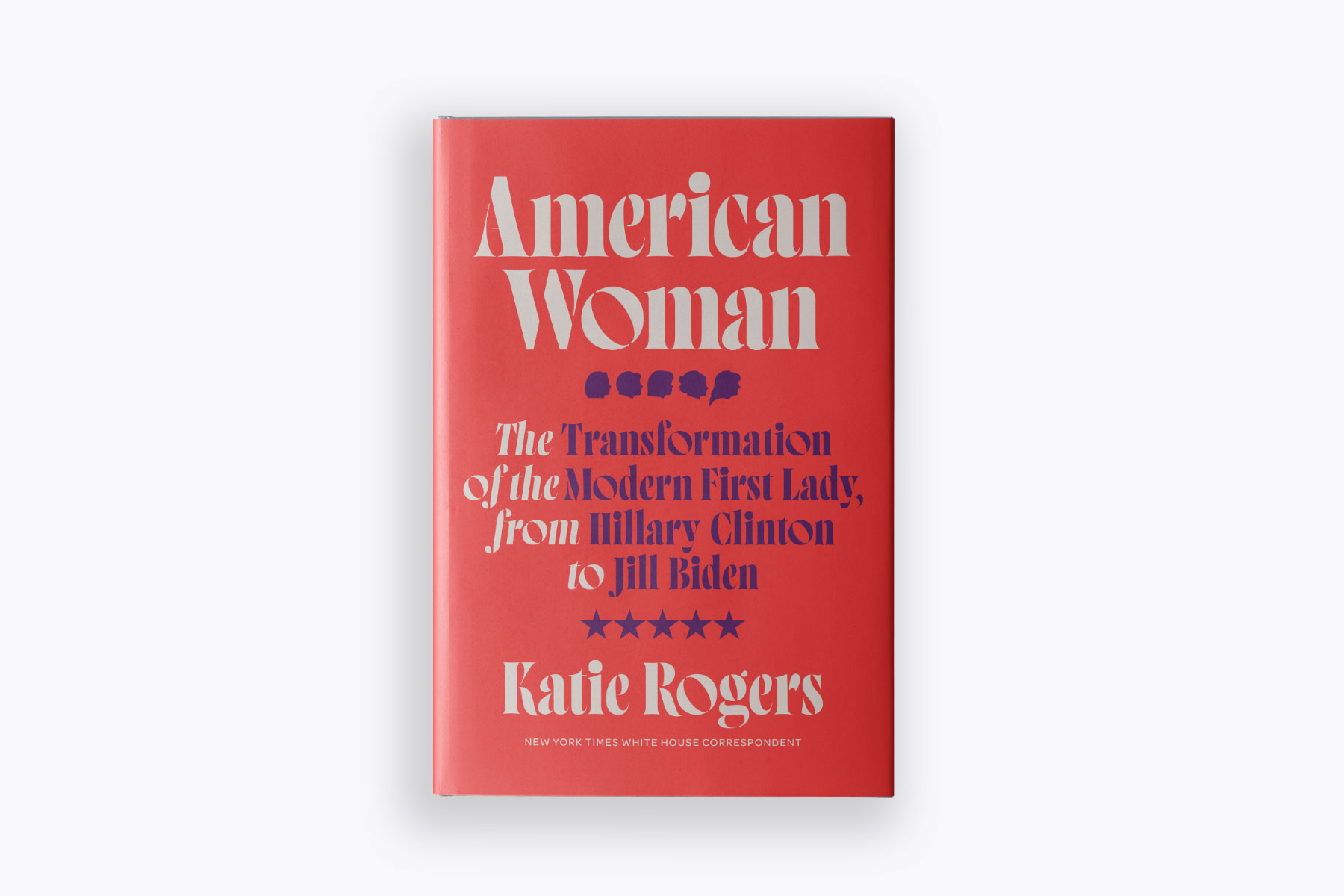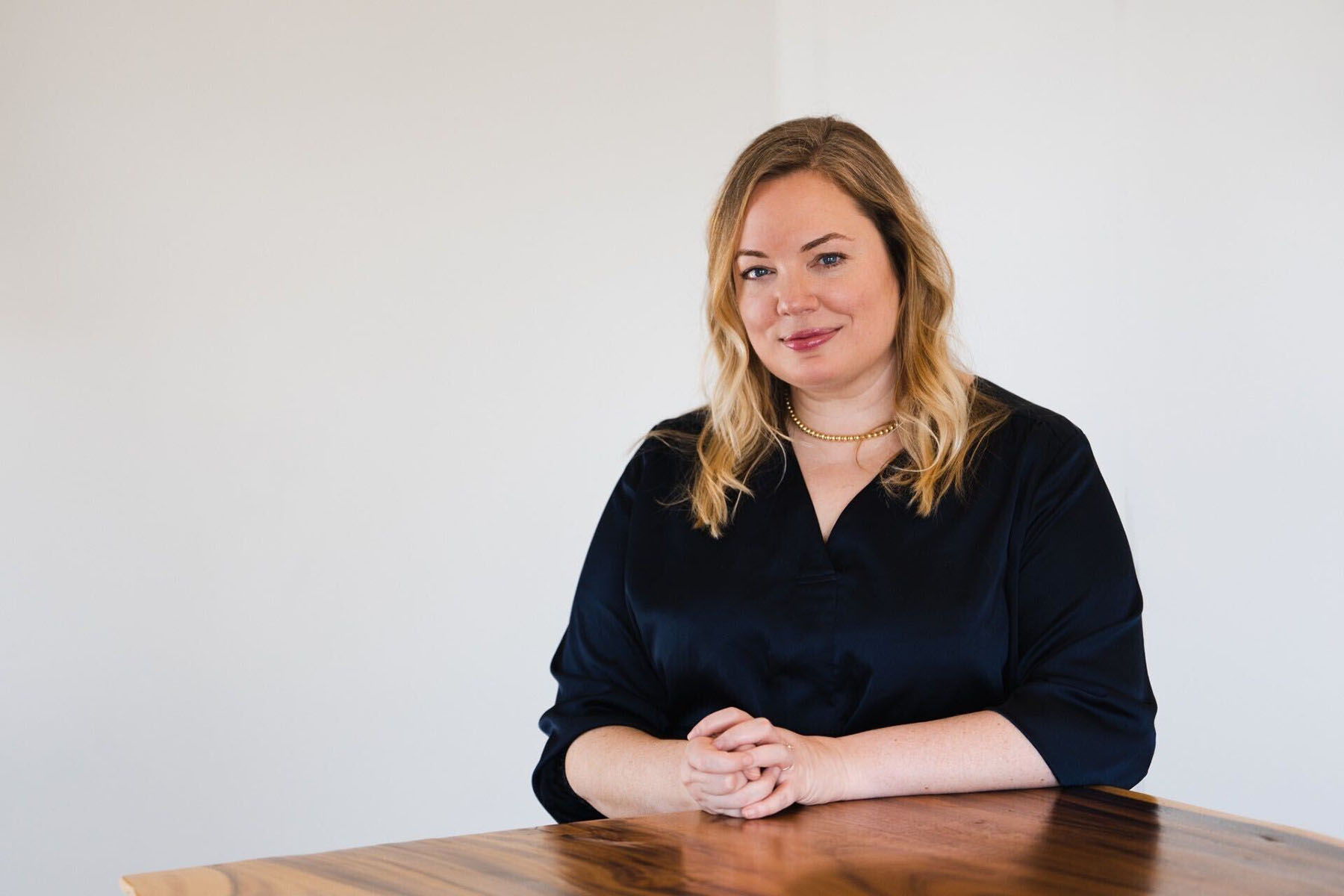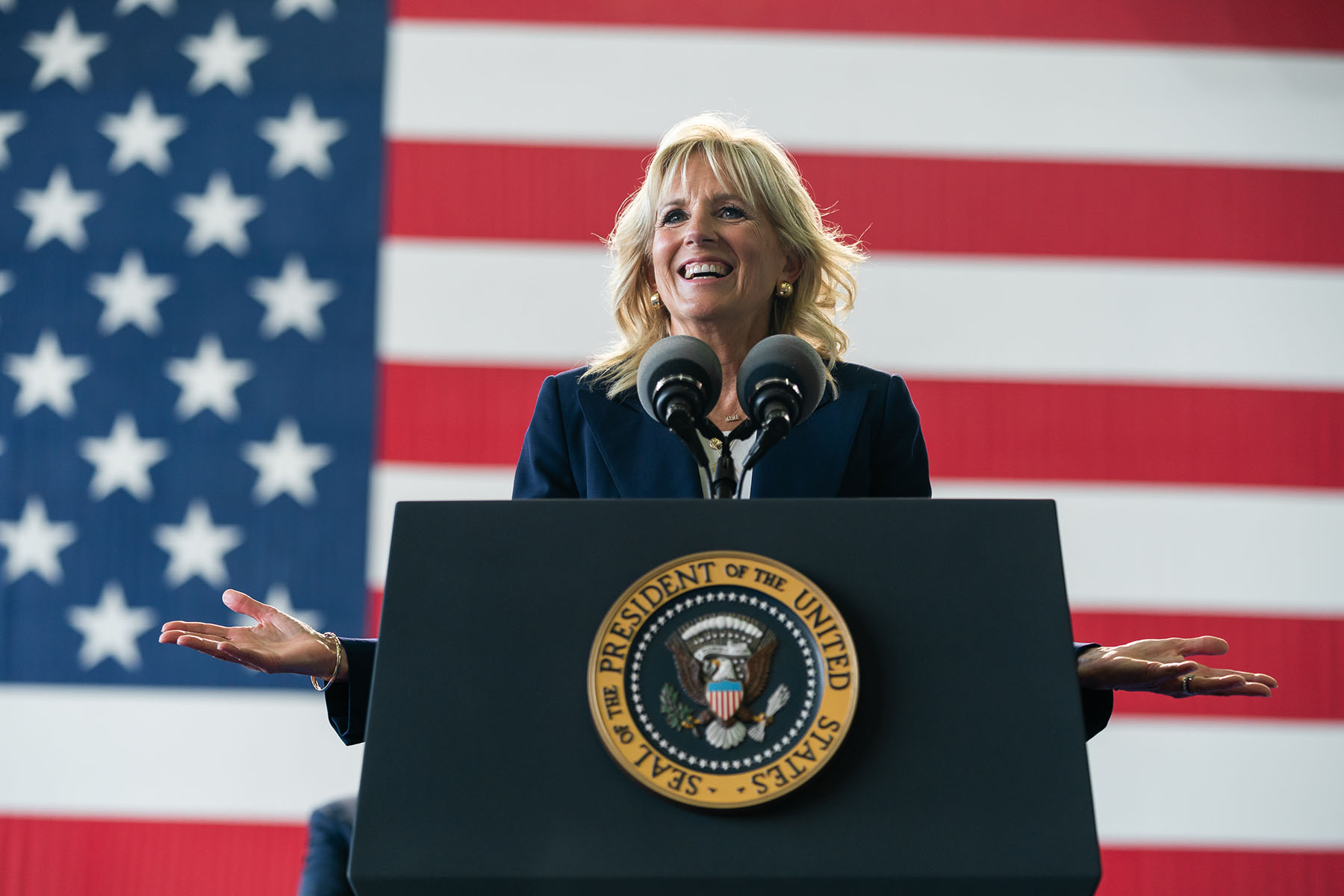It’s hard to be the first lady.
In her book “American Woman: The Transformation of the Modern First Lady, from Hillary Clinton to Jill Biden,” New York Times White House correspondent Katie Rogers maps out the unique challenges that infuse and define the job of the nation’s most visible political spouse — and the way it has been defined and redefined multiple times over in the past few decades alone. Rogers lays out the way that former Secretary of State Hillary Clinton first radically changed the office, and how it has continued to evolve in the hands of the women who came after her: Laura Bush, Michelle Obama, Melania Trump and Jill Biden.
Biden, Rogers says, has created yet another radical re-imagining of the title, keeping her commitment to her own career as an educator while also articulating her values through public commitments around deeply personal issues.
The 19th spoke to Rogers about her book — and what it means in looking ahead in understanding Biden’s role in the 2024 election and beyond.

This interview has been lightly edited for length and clarity.
Jennifer Gerson: What role do you think we might see the first lady play in the Biden campaign this cycle and what sort of expectations and motivations will be driving these choices?
Katie Rogers: I think it is a safe bet to expect Jill Biden to continue ramping up her campaign appearances, particularly at fundraisers, but also at places like medical centers — meeting with women who have had to go through some of the most horrific things women trying to have children can go through when their pregnancies go wrong. She’s somebody who is going to be meeting with people affected by Republican-enacted laws around women’s health.
I think you will also see her continuing to put Donald Trump essentially on notice. She recently made an appearance in Georgia and targeted Trump directly and said that he was bragging about killing Roe v. Wade, that he tears women down and that he’s proud of essentially devaluing women. And that is something that I would be shocked to not see her doing more of, given how galvanizing abortion and [reproductive] rights are for Democrats.
She’s one of the most powerful voices in this space for talking about it, as a woman who doesn’t like how Trump talks about women and doesn’t like how Trump has encouraged certain legislation around women’s bodies. So, she’s foremost a campaigner, I think, in this phase.
Your book really underscores how much Trump just does not sit right with the first lady — that’s something I didn’t really know the scope of before. How much of this is fueling her role as campaigner-in-chief?
She thinks Trump is a huge existential threat to democracy and an American way of life that a lot of Americans will recognize.
I talked to her for the book before Trump clinched the nomination, but I asked her how much Trump’s candidacy would affect how she felt about her husband running again. She said, ‘I would work twice as hard.’ To me, that just revealed the depth of animosity, but also alarm felt about him — the real threat that the Bidens believe he poses.
I think people look at first ladies — and particularly this first lady — as somebody who could have called off the campaign or encouraged her husband to step aside. He’s the oldest person to hold this office and to run for re-election, but the Trump factor both drives their competitive nature — largely it’s about the threat that they both believe he poses.
How much do you think that the first lady functions as someone who is able to translate this existential threat to American voters right now?
She’s certainly getting a lot of coverage when she talks about what is at stake — and that is really something. First ladies can kind of struggle with getting news headlines about the things they say because there are other principals in the administration who are traveling, who are higher ranking, who were elected, all talking about the accomplishments of the Biden administration but also the impact of a second Trump administration.
With her remarks on Trump, she keeps it pretty simple and pretty clear and you can’t get much clearer than that he’s bragging about overturning a constitutional right to abortion. And that’s something that a majority of Americans have signaled displeasure with; according to polling, they favor having a right to that procedure and a right to women’s health care. So she’s speaking to a majority of Americans when she talks about this, actually. So in that sense, she really breaks through.
Given how much coverage there has been on President Biden’s own hesitance around saying the word ‘abortion’ itself, what do you think the greatest and most notable differences are in the ways that the first lady is able to communicate with people about this issue?
Biden is a practicing Catholic who struggles with using the term. He has been pretty open about his discomfort with what he says is people accessing [abortion] freely. He is somebody who had to get himself to think about Roe and abortion protections as a fundamental right to privacy that Americans have. That is something over time that he has developed — and that is actually how you see reproductive rights groups talking about this issue now, really centered on this access to privacy. It’s a much broader approach to women’s health care and messaging than it is about access to this one procedure. So in a lot of ways, he is in the same space that a lot of Americans are in, which is that people should be afforded the right and the privacy to access this and it’s not my business if they do.
And so where Jill Biden differs from this is in the sense that she actually has shared a story about helping a friend who received an abortion in the years before Roe was decided. She and her mother allowed this friend to come and stay with them after the abortion procedure and it was private, it was a secret — so she’s able to speak on this in very personal terms and from experience about what happens to people without this constitutional right, and the way that it becomes shameful and can become dangerous. So she has a personal view into this that her husband just doesn’t have.
In your book you talk about the kind of criticism Jill Biden has faced, often internally, about establishing her issues portfolio and thinking about her ‘legacy’ — including criticism that her issues of education, support for military families and cancer are things that are too personal to her own experiences. How do you think this fits into what we’re seeing from her and her work right now with the White House Women’s Health initiative and the way she has grown into her role as First Lady?
I think one of the things people forget about is that the first year of the administration was completely focused on the pandemic. We were in a snapshot of time where the vaccine was not freely available yet, people were locked down, schools were closed — so really, it was an all hands on deck approach. They needed her in that time to literally hold hands when people received the shots, to talk in approachable terms about the vaccine and safely reopening schools. She’s a longtime educator. I think that’s the first thing anybody would know about her. And they came into office at a really weird time for Americans — a traumatic time for Americans.
So, she managed her portfolio in the context of that as well in the pandemic. Also she wanted to continue teaching a full course load. She had a military spouses initiative that she started with Michelle Obama that she wanted to continue. Cancer has personally touched her family and the lives of millions of others. And she also wanted to try for free community college. So really, it’s a long list. But the modern expectation is that these women have one, single tentpole policy issue and they build a big universe around it.
I don’t really know what’s fair, but I do think that one thing about these women is that they tend to do what works for them. I think there was a lot of expectation to do what former first ladies had done, just because that’s what they do and what they did.
Jill Biden is the first one to really pick and choose and modify what she can use her political capital on and her personal timeline.
It was not surprising to see her advocating for more money for women’s health care. What was interesting to me is that she sort of was focusing on financial investments, capital investments and technology, and her husband’s piece of it was signing an executive order calling for more federal funding into the research itself. It seemed to be sort of a two-pronged approach to this issue.

You lay out in your book how Hillary Clinton represented this huge shift in how we thought about the role of first lady, but you also strongly suggest that Jill Biden indicates yet another major shift in thinking about this job and what it means. What do you think she has most changed about the office?
I think there’s now a blueprint for somebody to go to work if they want to, which is a huge thing.
People have described this to me as not about her wanting to make a huge statement about women in the workplace or women keeping this part of their identity alive — I mean, we all make trade-offs in our relationships. Jill Biden just wanted to keep her career and her identity intact, and that’s something she’s been trying to do for years and years while still being a political spouse. So the fact that she had to sort of fight internally to make sure this happened — she’s now just made it easier for the next person to do that.
But another person who really did a lot to redefine this role was Melania Trump, because she would just leave for weeks at a time, she would drop an initiative and then reappear, she would slap her husband’s hand away and ride separately to the State of the Union. In some ways, that’s really redefining the role. It makes it easier for the next person to come in and say, ‘Hey I’m gonna go to work two days a week, but I’m still going to be the first lady. I’m still going to do these traditional things. I’m still going to plan the state dinners.’
All of these women shaped the experience for the person who comes next. But in Jill Biden’s case, this idea that the first spouse can continue to work is a huge step forward for a role that has really been set in amber.
How do you think the visibility of her commitment to her identity and her work translates in connecting with American voters and what do you think this means for the Bidens as they move ahead in this election cycle?
The short answer is that she prides herself on being able to get out of this bubble. It is a really singular life. It’s a very privileged life and no one is arguing that, but it can also be a very isolated life where you’re only hearing inputs from people who have worked with you for years. She prides herself on being able to talk to people outside of that bubble and then bring those stories back, which is a pretty classic political spouse role. They’re the ones that get these stories and bring them back and say, ‘This is my experience.’ And I think that’s a very valuable role. As the election season continues and the campaign gets underway, she can be another barometer for how different sorts of Americans are feeling.






